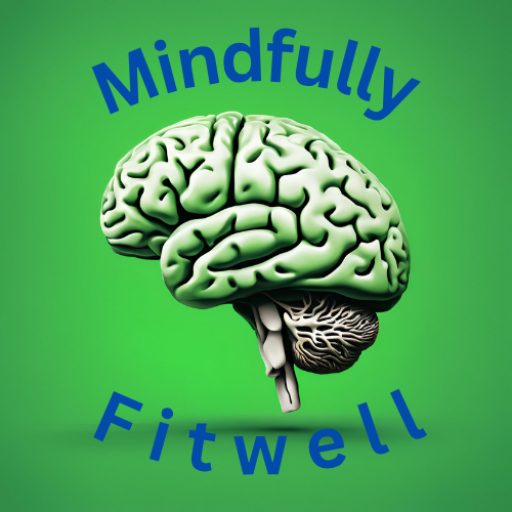Stress is a common part of modern life, but do you truly understand how it affects your mind and body? While it’s easy to brush off the occasional feeling of being overwhelmed, understanding the science behind stress can help you recognize its impact and find effective ways to manage it. This blog post will dive deep into the effects of stress on your physical and mental well-being and explore ways to manage it, including enrolling in a stress management course.
What is Stress?
Stress is a natural response to perceived threats or challenges. When you face a stressful situation, your body triggers a “fight-or-flight” reaction, releasing stress hormones like adrenaline and cortisol. These hormones prepare your body to respond quickly, enhancing alertness and energy. While this reaction is helpful in short bursts, prolonged stress can have serious consequences.
The Impact of Stress on Your Body
While stress is a survival mechanism, chronic stress can wreak havoc on your physical health. Here are a few of the most common effects:
1. Increased Heart Rate and Blood Pressure
When stressed, your heart rate increases as blood flows to vital organs and muscles. Prolonged stress leads to elevated blood pressure, which can contribute to heart disease and other cardiovascular problems.
2. Weakening of the Immune System
Chronic stress suppresses the immune system, leaving your body vulnerable to illnesses. This is why people under constant stress are often more susceptible to colds, infections, and even more severe conditions.
3. Digestive Problems
Stress can interfere with your digestive system, causing issues like stomach cramps, acid reflux, or irritable bowel syndrome (IBS). These digestive problems can further contribute to discomfort and anxiety.
4. Muscle Tension and Pain
When you’re stressed, your muscles tense up, especially in areas like your neck, shoulders, and back. This muscle tension can lead to chronic pain, headaches, or migraines.
5. Sleep Disturbances
Stress can severely affect your ability to sleep. It may cause insomnia or restless nights, leaving you fatigued and less able to cope with stress the following day.
The Psychological Effects of Stress
Stress isn’t just a physical problem—it also affects your mental health. Here’s how:
1. Anxiety and Depression
Long-term stress is strongly linked to mental health issues like anxiety and depression. When you’re constantly under pressure, it becomes harder to enjoy life and deal with daily challenges.
2. Impaired Cognitive Function
Stress can negatively affect your memory and concentration. It can make decision-making harder and leave you feeling foggy or forgetful.
3. Emotional Reactions
Stress can trigger mood swings, irritability, and emotional instability. You may find yourself reacting more intensely to situations or feeling overwhelmed by emotions.
How a Stress Management Course Can Help You Cope
While stress is a part of life, it doesn’t have to control you. Taking proactive steps to manage stress is essential, and enrolling in a stress management course is one of the most effective ways to learn how to manage it. These courses teach you techniques to cope with stress in healthier ways, such as mindfulness, relaxation exercises, and time management strategies.
By participating in a stress management course, you’ll gain tools to not only reduce stress but also build resilience against future challenges. If you’re interested, check out this stress management course for expert guidance and strategies that can help you regain control.
Simple Ways to Manage Stress
In addition to formal stress management courses, there are several practical strategies you can incorporate into your daily life to reduce stress:
1. Exercise Regularly
Physical activity is one of the best ways to combat stress. It releases endorphins, which are natural mood boosters. Even a simple walk or stretching routine can help relieve tension and improve your mood.
2. Practice Mindfulness and Meditation
Mindfulness involves staying present and accepting your thoughts and emotions without judgment. Meditation is a great way to clear your mind and calm your body. Together, these practices can help reduce stress and improve emotional regulation.
3. Get Enough Sleep
Stress often leads to poor sleep, but adequate rest is essential for managing stress. Aim for 7-9 hours of sleep each night to help your body recover and better handle stress the next day.
4. Set Boundaries
One of the key contributors to stress is overcommitting. Learn to say no and establish boundaries to ensure you’re not taking on too much. Prioritizing your well-being will help you avoid burnout.
5. Stay Connected with Loved Ones
Strong social connections can provide emotional support and help you navigate stressful situations. Talk to friends, family, or a therapist about what you’re experiencing to ease the burden of stress.
Conclusion
Understanding the science behind stress is essential for managing it effectively. From its effects on your body to its impact on your mental well-being, stress can take a significant toll if left unchecked. However, by implementing healthy coping strategies and seeking professional help, such as enrolling in a stress management course, you can gain control over stress and improve your overall quality of life.
If you’re ready to take charge of your stress management journey, we invite you to explore our stress management course. Take the first step toward a more balanced and stress-free life today.
Feeling overwhelmed? It’s time to take action. Explore our stress management course and start your path to better stress management today!

